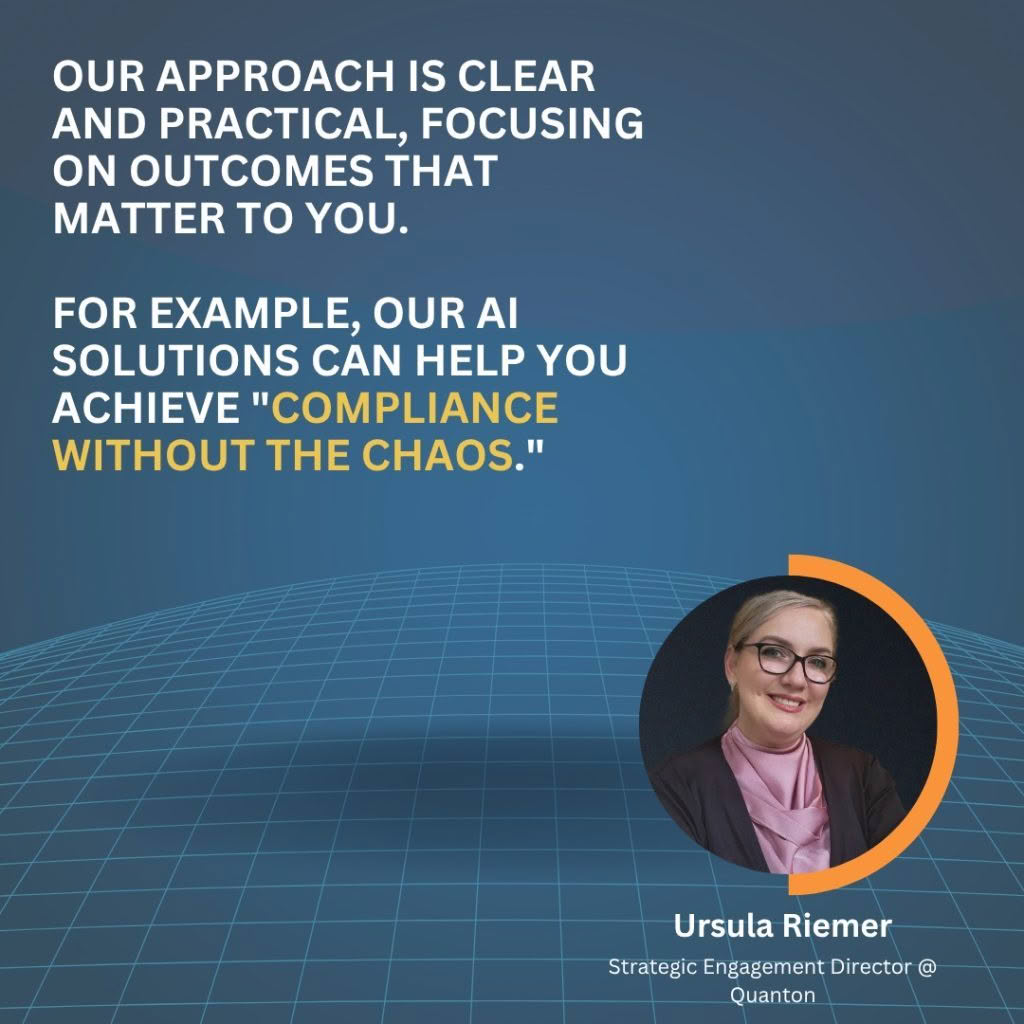
Navigating the complexities of compliance and risk management is a constant challenge for businesses today. The traditional approach to process audits can be time-consuming, resource-intensive, and often reactive, leaving organisations vulnerable to oversight and potential penalties. But what if there was a smarter, more proactive way?
At Quanton, we understand that great communication isn't just about showcasing what we know; it's about making that knowledge useful and usable for our clients. That's why we champion AI-driven process audits as a transformative solution

AI is revolutionising how businesses approach compliance and risk. Instead of manual checks and historical data reviews, AI can:
In fact, the use of AI, including generative AI and analytical AI, continues to build momentum, with over three-quarters of organisations now reporting that they use AI in at least one business function. More than half of enterprises surveyed have reported using AI to improve efficiency and enhance their digital risk posture. Furthermore, 68% of financial services firms state that AI in risk management and compliance functions is their top priority. These figures highlight a crucial shift towards leveraging advanced technologies in this critical area.
Quanton is an expert and trustworthy partner in AI transformation. We've delivered real results for organisations looking to leverage AI for better compliance and reduced risk. We speak with quiet confidence and explain complex concepts clearly, without resorting to jargon or buzzwords.

Our Strategic Engagement Director, Ursula Riemer, believes that transformation doesn't need a 100-page report. Our approach is clear and practical, focusing on outcomes that matter to you. For example, our AI solutions can help you achieve "Compliance without the chaos." Businesses often struggle with traditional compliance due to fragmented data and endless manual reviews. Our AI solution directly addresses this by centralising data, automating checks, and providing clear, actionable insights, bringing order to the complexity.
The future of compliance and risk management is intelligent, automated, and proactive. By embracing AI-driven process audits, you're not just improving compliance; you're building a more resilient, efficient, and future-ready organisation, as seen by the benefits our customers have derived from our pragmatic yet innovative AI solutions.
Ready to explore what's next in AI automation for your compliance needs? Quanton helps you "Build what's next". Reach out to Ursula Riemer today!